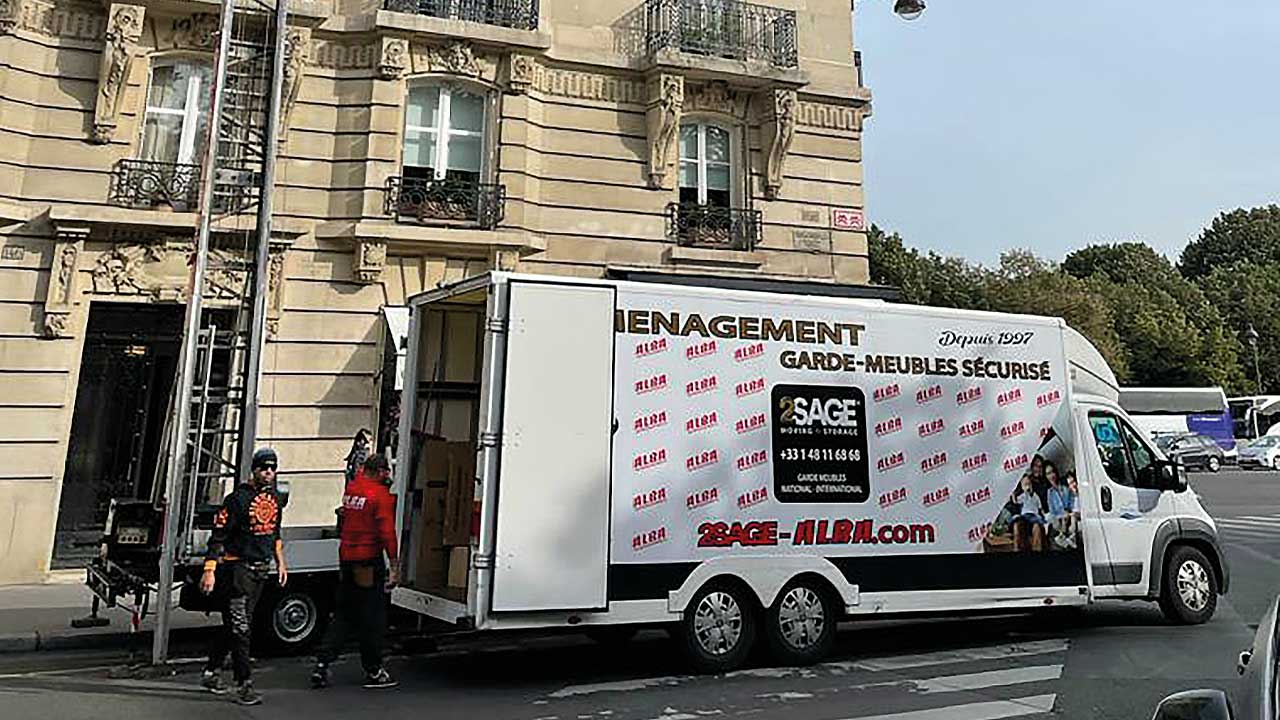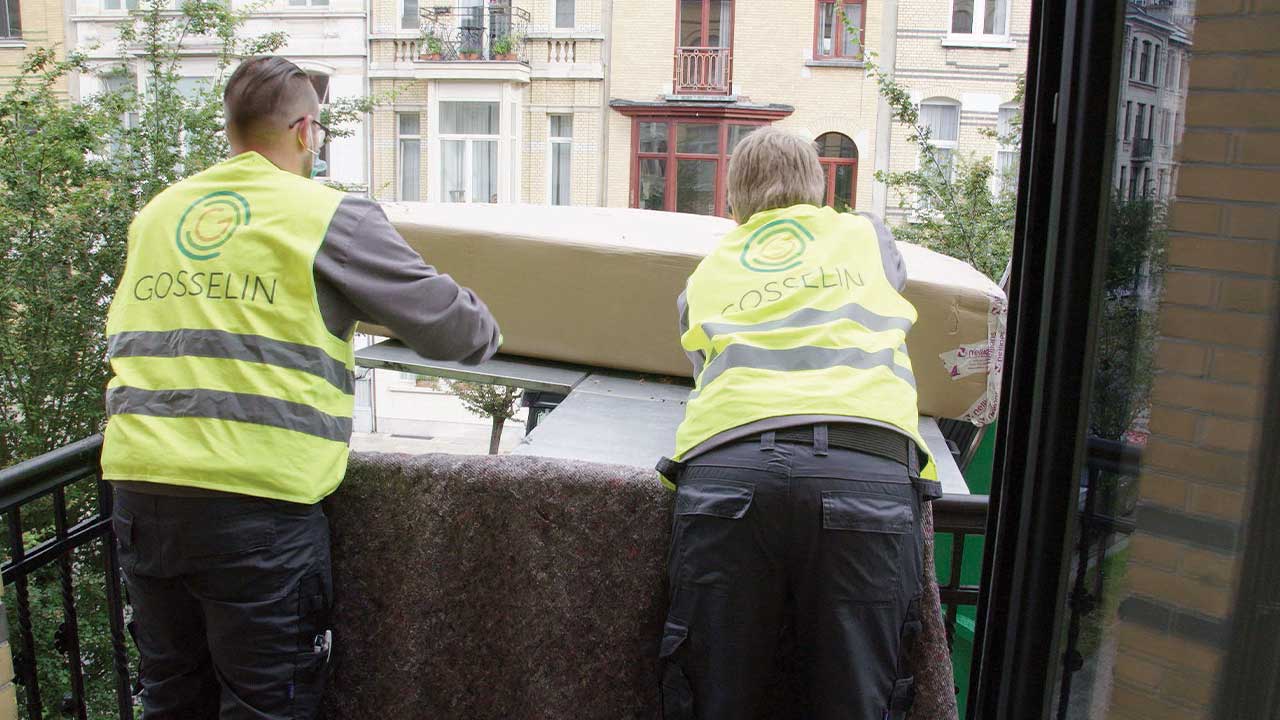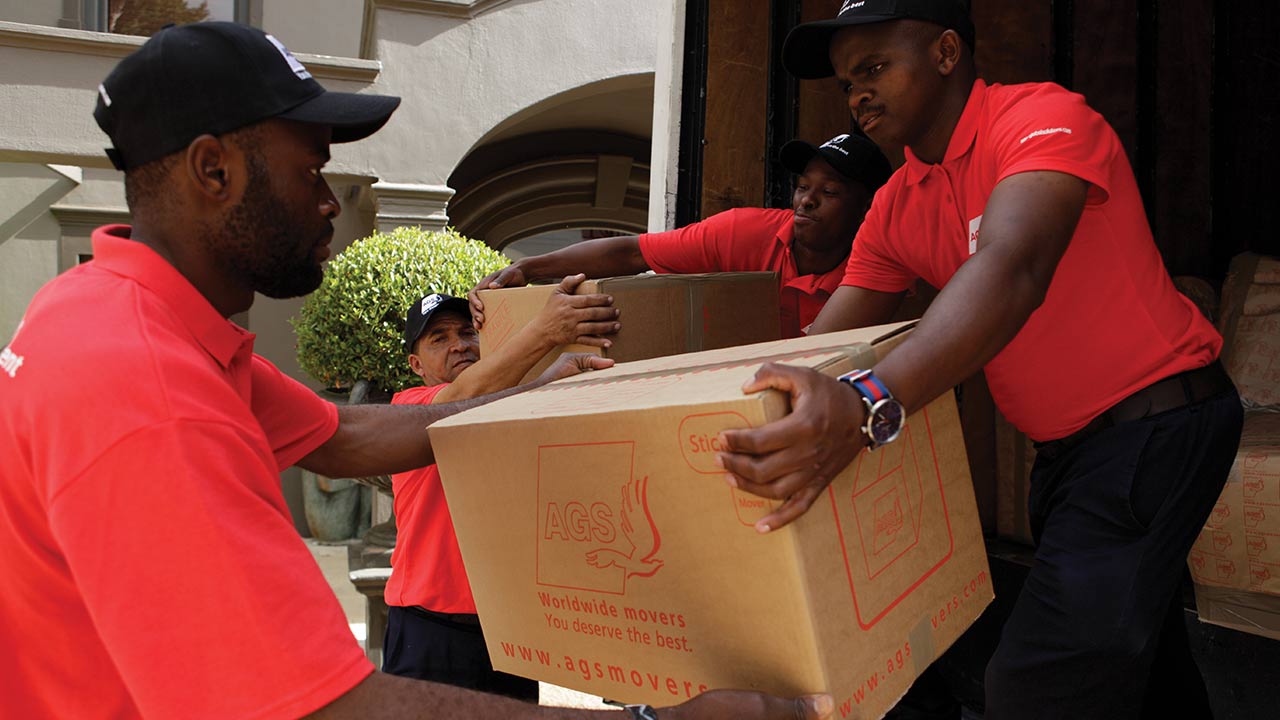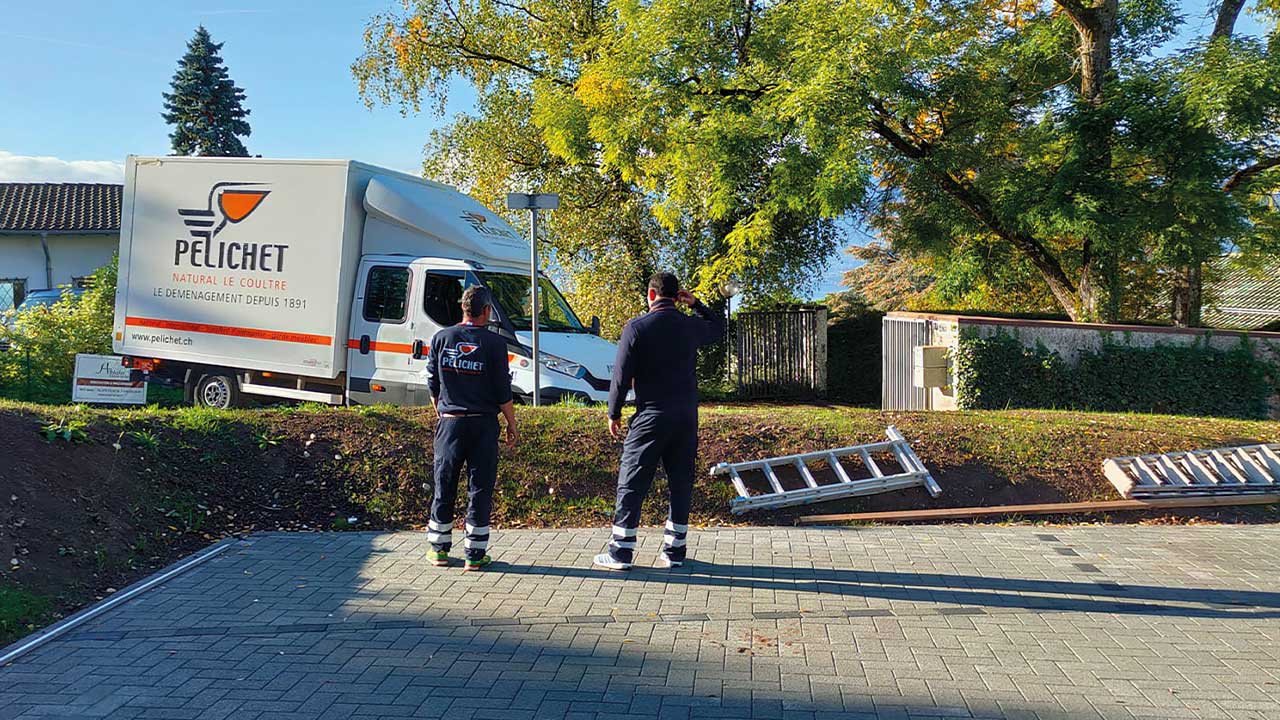As well as playing host to the FIDI Conference in Cannes in April, French Affiliates provide a good indicator of the health of the moving business globally. While COVID and subsequent ongoing issues have provided hefty challenges to the country’s movers, Andrew Mourant finds a general spirit of adaptation and bullishness about the industry’s recovery, and expected progress into 2022
As FIDI Affiliates gather for their conference in Cannes next April, the pleasure of reunion may be more heartfelt than usual, marked by relief at surviving a pandemic that wiped out many businesses.
When FIDI Focus spoke to French Affiliates, they had found ways of adjusting. But then along came the spike in global gas prices; rising ocean freight prices; lorry driver shortages; and, with the UK a major trading partner, the sharp end of Brexit.
At least most companies have found 2021 better than 2020, and are looking forward to 2022. ‘Managing stressful situations is a part of the moving industry routine, right?’ says Pelichet Paris general manager Jordan Alzraa. ‘The pandemic showed us the know-how of international moving companies, and how they can manage.
‘We didn’t lock down our offices. My objective was to help clients as much as possible. Despite restrictions, it was difficult for many companies to lock employees down, so moves continued.’
Forward planning was key. Pelichet anticipated the rising cost of materials ‘very early on’. ‘But we’re close to our providers, and they played fair – the increase of their rates was reasonable.’
Cedric Zibi, international manager of Paris-based Neer Service, reacted swiftly to COVID. ‘Once we realised the risks, we implemented a rigorous protocol for protecting our team and customers,’ he said. Measures included temperature and blood-oxygen checks, a thorough daily cleaning of trucks and moving equipment, and advising customers on social distancing.
William Ben Loulou, CEO of 2Sage Alba, says COVID has had a real economic impact. ‘At present, international activity has not recovered as it should,’ he adds. ‘Rising freight prices are not helping.’
Bruno Level, partner and international sales manager at All World Transport (AWT), says COVID put company business on hold for two months last year. ‘When activity resumed, we put in place health rules and barriers to protect staff and customers,’ he says.
The pandemic also stimulated demand for remote surveys. ‘Current technologies allow for better use of video. This avoids trips by our sales representatives and has a concrete impact on reducing CO2 pollution.’

Despite the upheaval, one upside of COVID was that FIDI members could tweak their daily operations. ‘We allowed employees to work at home and that helped us build up robust remote team management,’ says Laurent Giraud, regional managing director of Gosselin.
‘We also used the time to catch up on training.’ It is, he adds, ‘amazing’ how Gosselin has rebounded in 2021. ‘Because everything was put on hold, there has been a massive release (of business).’
It is all the more galling, then, for the industry to find itself now facing an intensifying driver shortage. For AGS, dealing with this entails a multipronged approach. ‘We have a panel of agents/subcontractors, plus our in-house fleet, and a coordination centre to ensure we optimise all our trucks,’ says Sophie Lucas, the firm’s managing director in France.
‘We also encourage staff to obtain their heavy truck driving licence.’

Grospiron has increased salaries and training. It also strives to make employees happy and feel important. ‘But the problem in attracting younger drivers is that it isn’t very exciting for them,’ company president Jean-Luc Haddad admits.
Gosselin faces different issues, as the firm doesn’t employ drivers or own trucks. ‘Freight forwarders have supplied us, but prices are rising and fewer drivers are available,’ says Giraud. ‘We have seen a lot of Polish drivers set up their own transport companies. Some have switched to superlight vehicles and the last-mile delivery model.’

Alzraa says drivers pose ‘a complex problem’ to the industry. ‘You need to target the perfect profile,’ he says. ‘The individual needs to be a truck driver, a potential mover-packer, and crew leader, because door-to-door VIP moves are our speciality.
‘But we’re challenged by logistics companies – they pay more than the moving industry for less physical effort. Our strategy is to identify movers with potential, passion for the job, and the desire to evolve in our company.’
Zibi finds French labour laws ‘not the easiest’ for a company employing its own staff. ‘But, despite the challenges of recruiting and retaining, we believe keeping our own crews will always deliver a better-quality outcome for the customer,’ he says.
‘Long before the current labour shortages, we introduced incentive programmes based around length of service and quality scores – both internal and external, from clients and partners. We also have a company savings account, which is tax free after eight years. This all helps keep our staff loyal.’
Ben Ioulou finds hiring truck drivers ‘very complicated’, and a further headache alongside the higher price of raw materials. ‘We’re obliged to pass this on, but it makes competition even more difficult,’ he says.
Alongside everything else, French Affiliates are taking all sorts of initiatives to reduce CO2 emissions. ‘We waste less and reuse packaging material,’ says Haddad. ‘Clients like to know about the carbon we’ve used. We have some electric lorries and electric vans, and solar panels on offices and warehouses.
‘The company has a staff member in charge of environmental matters and safety, a post created eight years ago. A circle meets regularly to discuss energy-efficient ideas. We have a French saying: “When you open the cage, many things come through the door”.’
At Gosselin, the shift towards remote surveys includes investing in Yembo, an AI tool. Movers can weigh up the furniture content of a room by clients relaying pictures via a smartphone camera – ‘a tool for the future’, says Giraud.
Like Grospiron, Gosselin picks its workforce’s brains for green ideas. It has set up a committee where suggestions are discussed and steered by management. Despite only being launched this year, it has yielded a ‘crazy’ number of ideas so far.
Pelichet is taking part in the UN Global Compact initiative. ‘We have an environmental responsibility standard we hold ourselves to,’ says Alzraa. Besides using recyclable packaging, his company encourages electronic exchanges in preference to paper consumption.

Trucks are Euro 5 standard compliant and disposal of engine oil is regulated. ‘We choose the transport that makes the least environmental impact while still staying within clients’ timelines and budgets,’ he says.
Zibi has long realised what damage moving can inflict upon the environment. ‘Before the current conversation on sustainability, Neer was using recyclable materials,’ he says. Among other initiatives is the introduction of mirror window protectors to reduce office temperatures. ‘All those efforts came together under “Objectiv CO2”, a French government programme providing tools that allow companies to monitor, manage and reduce emissions. We see this as critical to the future of our business.’
Besides recycling, consumption of water and electricity is strictly monitored at AWT, says Level. The company intends to make greater use of IT to store documents, reducing printing and using less paper.
Meanwhile, Ben Loulou reports that 2Sage Alba has a goal of upgrading all vehicles to EURO 6 standards. Currently, it has three electric vehicles. It has also acquired a warehouse on 1.5 hectares of land maintained by ‘eco-grazing’.

AGS takes a combined approach to waste management through prevention (less paper printing) and recovery (reuse, recycling and energy recovery). ‘All our heavy trucks are EURO 6 – the fleet has changed from diesel-powered to gasoline, and forklifts are electric,’ says Lucas. ‘Environmental pilots are driving all staff to better practices and they’re bringing in new ideas.’
As if they didn’t have enough challenges, FIDI members must now navigate the fallout from Brexit on their UK market. For some, the impact appears greater than for others. Grospiron, facing delays with goods moved via the Channel Tunnel and having to pay VAT, is building up its businesses elsewhere – through bases in Dubai and Hong Kong, and has plans for new offices in the near future. The company is also concentrating on other strands of trade, such as fine art, record storage, and relocation.
Traffic from Britain to France has been ‘very heavy’ since last autumn, says Lucas. ‘We had to cope with COVID restrictions on top of customs formalities. We’ve put in processes that allow our trucks and team to handle customs in and out with the most efficiency. But with the lack of shipments from France, we’ve been obliged to send empty trucks for jobs out of the UK. We have fewer UK trucks running into Europe, and prices have increased substantially.’
Ben Loulou has noticed English authorities growing ‘stricter and more demanding on costs and on formalities’ – and while homecoming French expats from the UK have helped business boom for Gosselin, Brexit bureaucracy has brought problems. Giraud is thankful Gosselin has a UK base to help resolve confusion where it arises.
Despite an exodus from the UK, Level says England remains ‘a strong destination, with a lot of potential’. For Pelichet, however, Brexit – alongside COVID – has proved ‘a wild ride’. ‘London and Paris have strong business links, but now we’re looking at each other as if we’re strangers,’ says Alzraa. The company is restricting moves to solely sea export or import, and he sees the France/UK business pipeline shrinking year after year for business accounts – though he believes the private-clients market will remain buoyant.
What of the future? Compared with 2020, Alzraa considers 2021 as ‘a good season, with a lower volume of moves, but good-quality ones’. ‘I’m in a positive mindset. Our clients have a strong appetite for extra VIP services and look ready to pay the price.’
Ben Loulou shares this optimism. ‘History has shown that, after a crisis, there’s always an economic boom,’ he says.
Level also sees reasons to be cheerful: ‘It looks encouraging for 2022, but things will depend on the evolution of the (COVID) virus. However, I think it can allow us to find alternative solutions, or a better use of our resources.’
Giraud looks forward to the US market fully reopening. Meanwhile, he says Grospiron must continue adjusting to the trend of more private moves, smaller volumes, and people working remotely. ‘Some of those moves are becoming much more a rush… super-urgent,’ he says.
‘I think smaller firms will have gone out of business because they couldn’t cope. You need to be robust to survive… but, for those who do, there’s a market.’

Lucas believes that AGS’s niche markets have helped it navigate economic turbulence. ‘2021 has been very busy, but the shipping line industry crisis has generated a lot of problems and dysfunction that will affect our profit,’ she says. ‘Clients affected by the pandemic have been reluctant to understand delays generated by the lack of shipping lines availability.’
AGS coordinators have borne the brunt of this frustration. ‘It’s a challenge to keep our most talented colleagues in such a stressful environment.’
Gospiron has experienced the same stresses. ‘Ocean freight prices are increasing every day,’ says Haddad. ‘When you do an estimate in June, but pack in August, you have to explain why your rates have gone up. Customers don’t like it, but they understand.’
Unsurprisingly, Lucas feels it’s too early for optimistic projections. ‘The international transportation crisis will continue until Q3 2022, at the minimum. We’re also waiting for clients to communicate their new mobility policies.’
As move volumes decrease, AGS has worked to develop other business lines, such as relocation services and record management.
Haddad says that, at Grospiron, being a family-owned company drives the need to become more adaptable. His tip for the future? ‘Look for new activity and diversity. You have to be as low asset as possible – don’t be overweight; don’t invest before you need to.’

